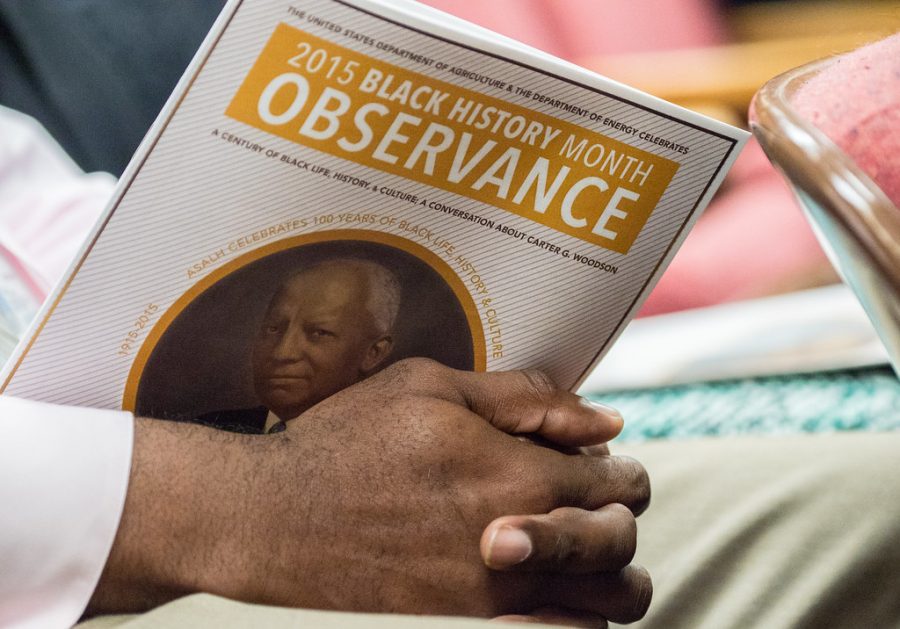The origins, evolution of Black History Month
Photo used with permission Google Commons
Carter G. Woodson is honored at a Black History Month celebration in 2015.
Black History Month celebrates the achievements of Black Americans and raises awareness of their contributions to American history and culture. Originally only a week-long, it has transformed to be a month of celebration, education and reflection.
In 1926, historian Carter G. Woodson and the Association for the Study of Negro Life and History (ASNLH), now called the Association for the Study of African American Life and History (ASALH), founded national “Negro History Week.” They chose to make it the second week of February to honor the birthdays of Frederick Douglass and Abraham Lincoln, two men who greatly impacted the abolishment of slavery. However, Woodson wanted the week to honor all Black Americans. “Rather than focusing on two men, the black community, [Woodson] believed, should focus on the countless black men and women who had contributed to the advance of human civilization,” according to ASALH.
The week quickly caught the attention of schools, Black communities and progressive Americans. Every year, communities across America celebrated it to bring attention to the hardships and accomplishments of Black Americans, including their impact on American history and influence on culture. Woodson especially focused on schools, wanting American children, specifically Black American children, to be educated on the long-neglected history of African Americans.
During the Civil Rights movement in the 1950s and 1960s, more Americans began to recognize the significance of African American history and join the annual celebration of their accomplishments. Around the country, especially on college campuses, the week-long celebration began to slowly extend into a month. In 1976, 50 years after the first celebration, the week had officially evolved into the entire month of February: Black History Month. Despite February being the dedicated month to celebrate Black History, it should be celebrated and discussed all year.
Since the Ford presidency in 1976, Black History Month has been federally designated as the month of February by every president and given a theme. This year’s theme is “Black Family: Representation, Identity, and Diversity.” The theme is intended to facilitate discussion on the diaspora of Africa and the often stereotypical representation Black families receive. The event also inspired other nations, such as Canada and the United Kingdom, to form their own versions of Black History Month.
Black History Month is celebrated differently across the country, but its message remains invaluable. “For me, Black History Month means a time to celebrate courageous, beautiful and powerful African Americans. Although struggling to find a voice in this world, we were able to come together to celebrate our growth and experience. I celebrate Black History Month by being a part of our school’s Black History Month program,” senior Laurenne Yomi Mvete said.
Your donation will support the student journalists of Thomas S. Wootton High School. Your contribution will allow us to purchase equipment and cover our annual website hosting costs.
Quinn Lugenbeel is a 2021 graduate.







